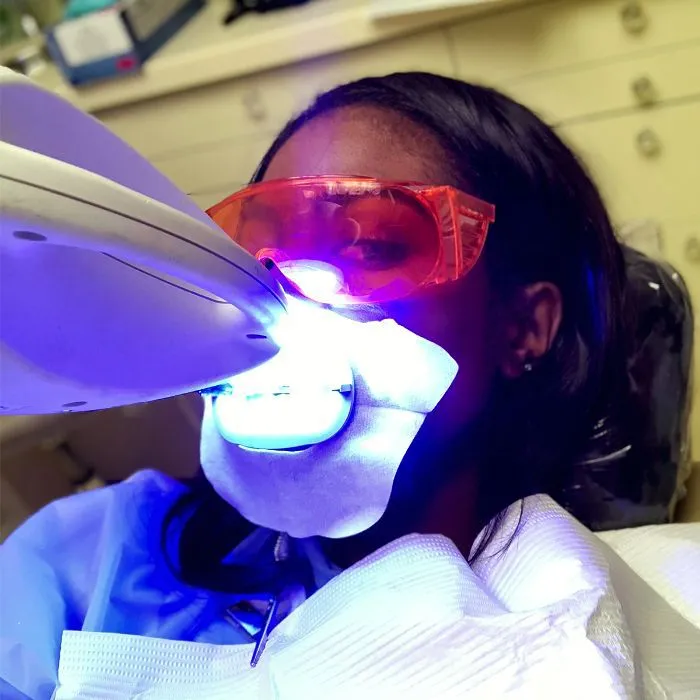What Is Laser Teeth Whitening
Laser teeth whitening, also known as power whitening, is a popular cosmetic dental procedure designed to brighten your smile significantly in a single office visit. It utilizes a high-intensity laser light in conjunction with a bleaching agent, typically hydrogen peroxide, to accelerate the teeth-whitening process. Unlike over-the-counter whitening products, laser teeth whitening is performed by a dental professional, ensuring both effectiveness and safety. This procedure is ideal for individuals seeking dramatic and immediate results, effectively addressing stains caused by coffee, tea, tobacco, and aging. The process is generally quick, making it a convenient option for those with busy schedules. Understanding the fundamentals of this procedure will help you determine if laser teeth whitening is the right choice for achieving a brighter, more confident smile.
The Laser Teeth Whitening Procedure
The laser teeth whitening procedure is a meticulously executed process designed to maximize whitening while protecting the health of your teeth and gums. It generally involves several key steps, each playing a crucial role in the overall outcome. From initial preparation to post-treatment care, every phase is handled with precision by a trained dental professional. Knowing what to expect during each stage can ease any anxiety and help you fully appreciate the benefits of this advanced cosmetic treatment. The procedure is efficient, typically taking about an hour to complete, and can dramatically enhance your smile’s appearance in just one session. A comprehensive understanding of this procedure helps you appreciate the technology and expertise involved in achieving a dazzling white smile.
Pre-Treatment Preparation
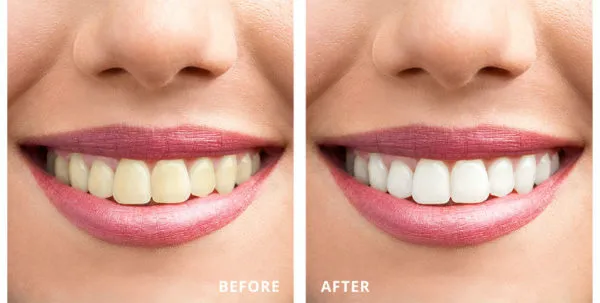
Before the laser teeth whitening process begins, your dentist will conduct a thorough examination to assess your oral health. This is an important step to ensure you are a suitable candidate for the procedure. This assessment includes checking for cavities, gum disease, and any other dental issues that need to be addressed before whitening. Any existing dental work, such as fillings or crowns, will also be evaluated, as these materials do not whiten in the same way as natural tooth enamel. If any problems are found, they will need to be treated before the whitening process can proceed. The dentist will also clean your teeth to remove plaque and surface stains, allowing the whitening agent to work more effectively. This preparation is crucial for a successful and safe whitening experience.
The Whitening Gel Application
Once your teeth are clean and prepared, the dentist will apply a high-concentration hydrogen peroxide whitening gel to the surface of your teeth. The dentist carefully applies this gel to ensure it covers all visible surfaces, which is a critical step for uniform whitening. The dentist must protect your gums and soft tissues from the bleaching agent. To do this, a protective barrier, such as a cheek retractor and a gingival dam, is used to isolate your teeth and keep the gel away from your gums. The gel is usually applied in multiple cycles, allowing sufficient time for the bleaching agent to penetrate the enamel and break down the stain molecules. The effectiveness of the gel is significantly enhanced when used in conjunction with the laser activation process.
Laser Activation Process
This is the core of laser teeth whitening’s effectiveness. After the whitening gel is applied, a special laser light is directed at the teeth. This laser acts as a catalyst, speeding up the chemical reaction of the whitening agent. The laser emits a specific wavelength of light that activates the hydrogen peroxide in the gel. This process increases the breakdown of stain molecules within the tooth enamel. This process is repeated multiple times, typically in 15- to 20-minute intervals, to achieve the desired level of whitening. The dentist carefully controls the duration and intensity of the laser exposure to maximize results and minimize the risk of sensitivity. The laser activation process enhances the whitening potential of the gel, providing faster and more dramatic results than traditional methods.
Post-Treatment Care
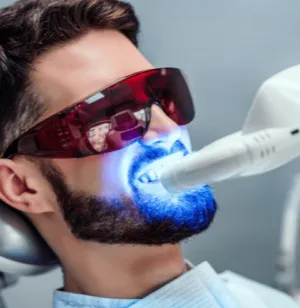
Following the laser teeth whitening procedure, it is essential to follow your dentist’s post-treatment instructions to maintain your new, bright smile and minimize any potential side effects. This typically includes avoiding foods and beverages that can stain your teeth, such as coffee, tea, red wine, and dark-colored sauces, for at least 48 hours after the procedure. You should also refrain from smoking, as this can quickly re-stain your teeth. Your dentist might also recommend using a desensitizing toothpaste to reduce any temporary sensitivity. Regular brushing and flossing, combined with routine dental check-ups and cleanings, are crucial for long-term results. Following these guidelines will help you enjoy your whiter teeth for as long as possible.
Understanding the Science Behind Laser Whitening
Laser teeth whitening is rooted in scientific principles that leverage the power of light and chemistry to transform the appearance of your teeth. Understanding the core concepts behind this process illuminates how the procedure is not only effective but also relatively safe when administered by a qualified dental professional. This understanding explains the science behind the procedure, providing insight into the mechanism that delivers the brighter smile.
How Does Laser Whitening Work
The primary agent used in laser teeth whitening is a bleaching agent, typically hydrogen peroxide, which penetrates the enamel and dentin of your teeth. Once inside, the hydrogen peroxide breaks down into oxygen molecules. These oxygen molecules then react with the stain molecules within the tooth structure, breaking them apart and thereby lightening the overall appearance of the teeth. The concentration of hydrogen peroxide used in professional whitening treatments is significantly higher than that found in over-the-counter products. This higher concentration allows for quicker and more dramatic results. The laser accelerates this process, leading to a more effective and faster whitening experience.
The Role of the Laser
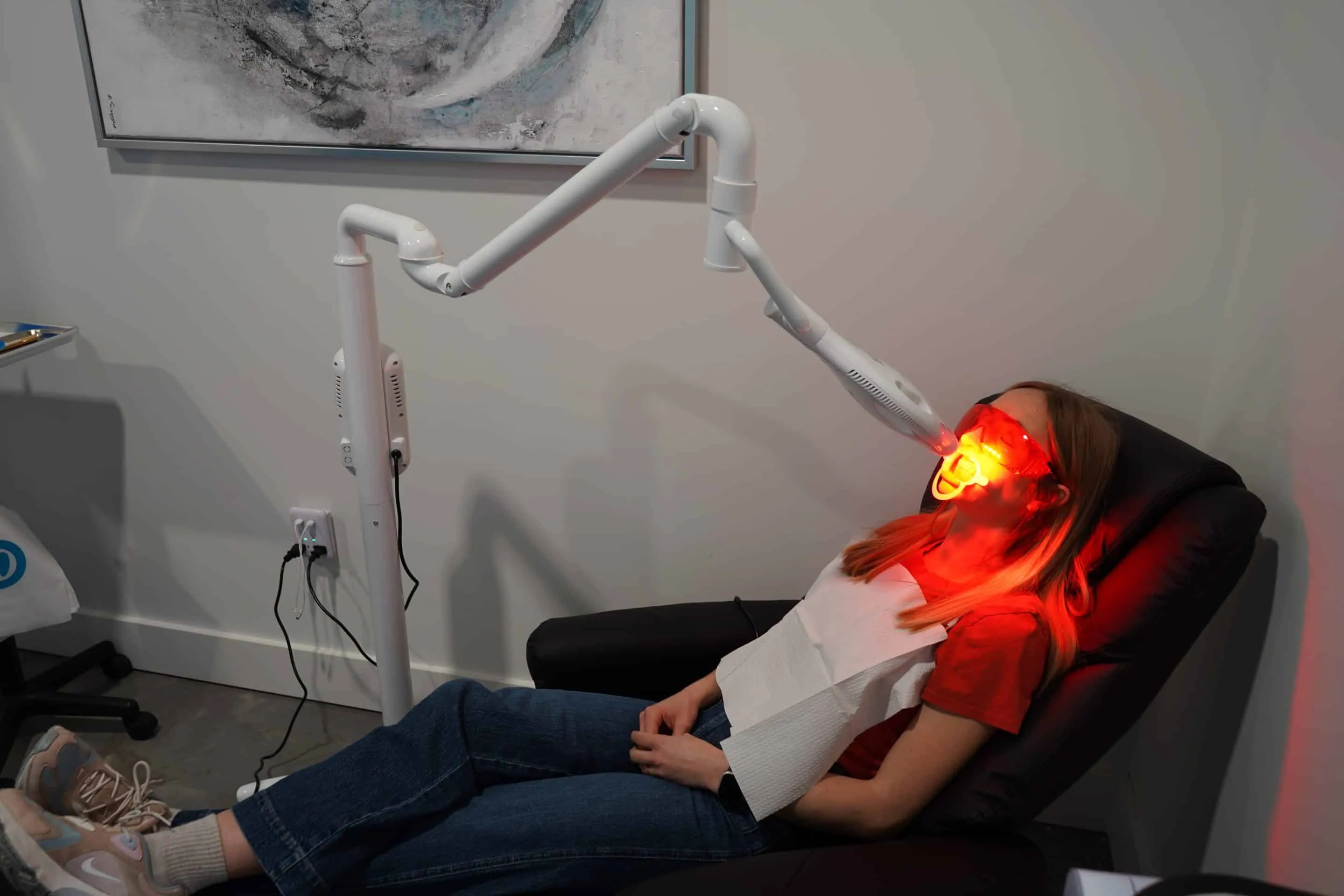
The laser plays a crucial role in enhancing the whitening process. The laser emits a specific wavelength of light that activates the hydrogen peroxide gel. This light energy increases the rate at which the hydrogen peroxide breaks down, accelerating the release of oxygen molecules. This accelerated reaction significantly speeds up the whitening process, allowing for more dramatic results in a shorter amount of time. The laser ensures that the whitening agent reaches all areas of the tooth’s surface, leading to a more uniform and effective whitening. The use of laser light minimizes the overall treatment time and enhances the final outcome.
Chemical Reaction Explained
The chemical reaction involved in laser teeth whitening is a delicate balance between the bleaching agent and the tooth structure. As the hydrogen peroxide is activated by the laser, the oxygen molecules released effectively target and break down the stain molecules. These stain molecules are often caused by pigments from food, beverages, and tobacco use that accumulate within the enamel and dentin over time. This process does not harm the tooth enamel, but rather works at a microscopic level to remove the discolorations. This carefully orchestrated chemical reaction is why laser teeth whitening is so effective at delivering noticeable results. The reaction is designed to leave the tooth’s structure intact while creating a brighter, whiter appearance.
Advantages of Laser Teeth Whitening
Laser teeth whitening offers several advantages that make it a popular choice for those seeking a brighter smile. These benefits stem from the procedure’s effectiveness, speed, and the expertise of dental professionals. Understanding these advantages can help you decide if laser teeth whitening is the right solution for your cosmetic needs. The advantages of laser teeth whitening are not only about aesthetics; they can significantly boost your confidence and overall oral health.
Speed and Efficiency
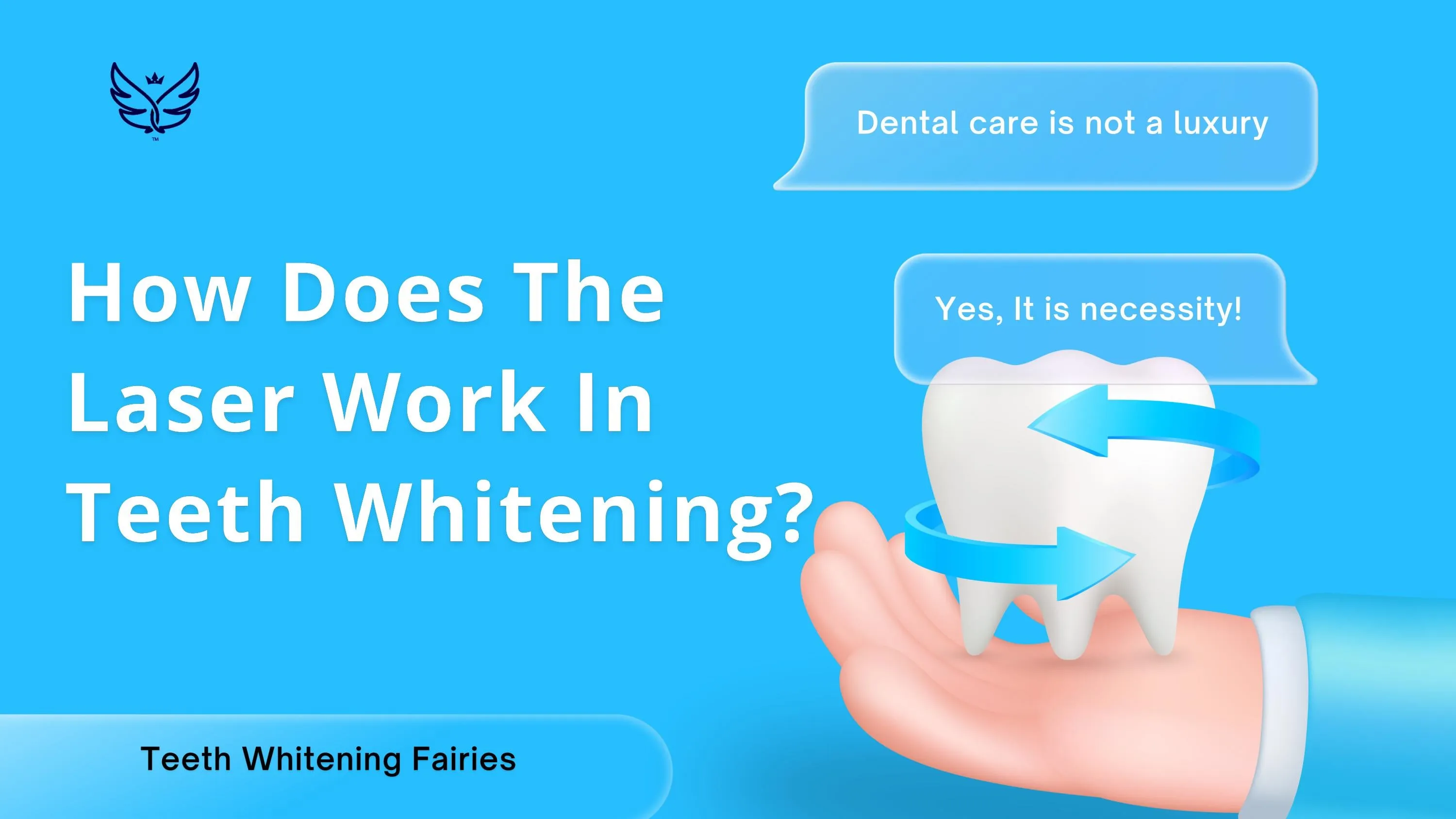
One of the most significant advantages of laser teeth whitening is its speed and efficiency. The entire procedure, from start to finish, typically takes about an hour. This makes it a convenient option for those with busy schedules who want immediate results. The laser light significantly accelerates the whitening process, allowing for multiple applications of the whitening gel during a single session. The speed of laser whitening is particularly appealing for those seeking to enhance their smiles quickly, such as before a special event or for an instant confidence boost. The combination of speed and effectiveness makes laser teeth whitening a top choice in cosmetic dentistry.
Enhanced Results
Laser teeth whitening is known for producing dramatic and noticeable results. The use of a high-concentration bleaching agent and the activation of the laser often lead to significant improvement in tooth shade. Many patients experience several shades of lightening in a single session, which can drastically transform their smiles. These results can provide a significant boost to self-esteem and overall appearance. With laser teeth whitening, the results are far more pronounced than those achievable with over-the-counter whitening products. The procedure’s enhanced results make it a favorite among those seeking the most impactful cosmetic dental treatment.
Potential Risks and Considerations
While laser teeth whitening is generally a safe and effective procedure, it is essential to be aware of potential risks and considerations. Understanding these factors helps you make informed decisions about your dental care and ensures a successful whitening experience. Some common side effects are temporary and manageable, while others warrant careful attention. Consulting with a qualified dentist is paramount to discussing these considerations and assessing your individual suitability for the procedure.
Teeth Sensitivity
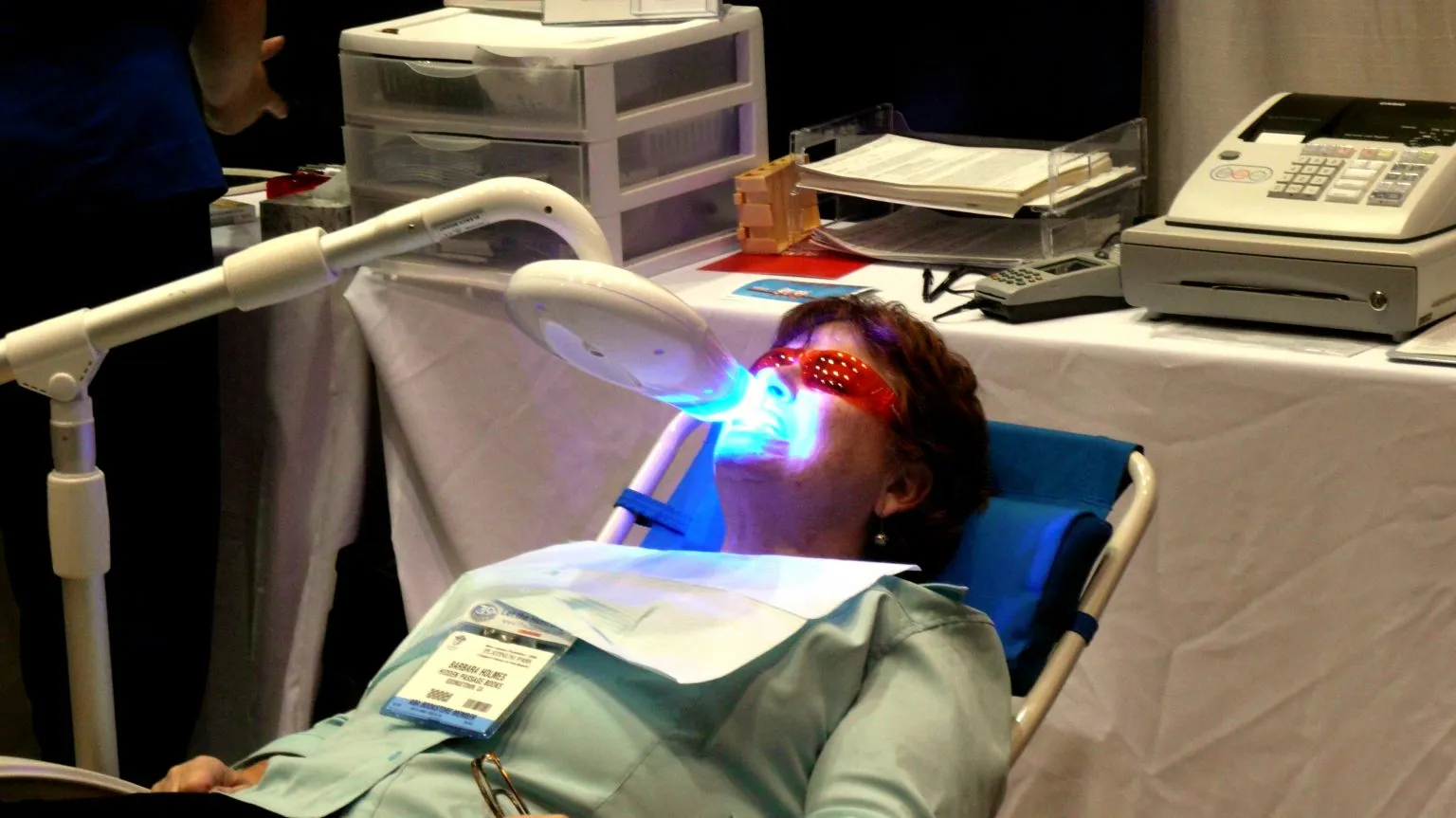
One of the most frequently reported side effects of laser teeth whitening is temporary tooth sensitivity. This sensitivity can manifest as a sharp, but brief, pain when consuming hot or cold foods and beverages. This occurs because the whitening agent can temporarily penetrate the enamel and reach the nerves within the teeth. This sensitivity usually subsides within a few days after the procedure. Dentists often recommend using a desensitizing toothpaste before and after the treatment to help minimize this discomfort. The dentist might also apply fluoride treatments to strengthen the enamel and reduce sensitivity. Proper aftercare is important to manage any sensitivity.
Gum Irritation
Gum irritation is another potential side effect, usually resulting from the whitening agent coming into contact with the gum tissue. Dentists take great care to protect the gums during the procedure. If this does occur, it often presents as redness, swelling, or mild discomfort. This irritation is typically temporary and resolves within a few days. Your dentist might apply a protective barrier to the gums during the procedure to minimize the risk of irritation. Rinsing with a saltwater solution can help soothe the irritated gums and promote healing. It is essential to inform your dentist of any prolonged discomfort, so they can provide appropriate care.
Who Is a Good Candidate
Not everyone is a suitable candidate for laser teeth whitening. Factors such as existing dental conditions, the type and severity of stains, and individual oral health can influence the suitability of the procedure. A thorough evaluation by a dentist is crucial to determine if you are an ideal candidate. This evaluation assesses your oral health and discusses your expectations to ensure optimal results. Understanding the criteria for candidacy will help you manage expectations and pursue other effective solutions if necessary.
Factors Affecting Candidacy
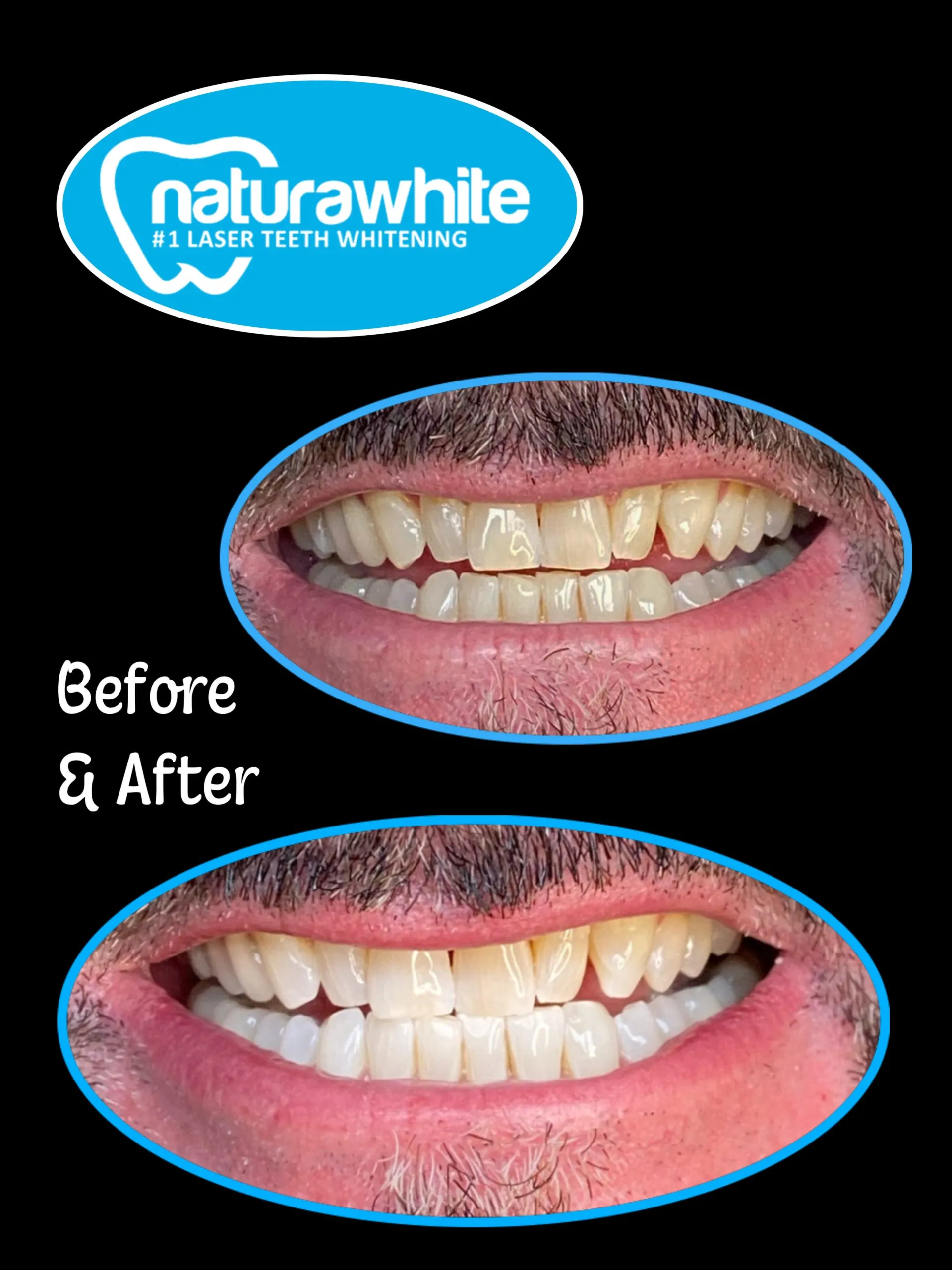
Several factors are considered when evaluating your candidacy for laser teeth whitening. Individuals with healthy gums and teeth, free from active cavities or gum disease, are generally the best candidates. The type of stains you have is also a crucial factor. Extrinsic stains, those on the surface of the enamel, often respond well to whitening. Intrinsic stains, originating from within the tooth structure, might require more sessions or might not whiten as effectively. Individuals with sensitive teeth or those with existing dental work, such as fillings or crowns, need to be carefully evaluated. The dentist will take all these factors into account to determine if laser teeth whitening is the best solution.
Alternatives to Laser Teeth Whitening
If laser teeth whitening is not suitable for you, or if you prefer a different approach, several alternative teeth whitening methods are available. These options range from over-the-counter products to professional treatments that can help you achieve a brighter smile. Exploring these alternatives can help you find a suitable solution that meets your needs and preferences. Your dentist can guide you in selecting the most effective option.
- Over-the-counter whitening strips and gels offer a convenient option for at-home whitening. These products usually contain a lower concentration of hydrogen peroxide. Results can be less dramatic than professional treatments but are effective for mild stains.
- Custom-fitted whitening trays, provided by your dentist, use a professional-strength whitening gel. The dentist takes impressions of your teeth to create a custom tray. This ensures the whitening gel is in close contact with the teeth. This method can deliver significant results and offers better control over the whitening process than over-the-counter options.
- Professional teeth cleaning removes surface stains and plaque, giving your teeth a brighter appearance. Regular dental check-ups and cleanings are essential for maintaining oral health and can enhance the overall appearance of your smile.
- Porcelain veneers, are thin shells bonded to the front of your teeth. These veneers can correct severe discoloration and other cosmetic issues. Veneers provide a permanent and durable solution but require the removal of some enamel from your teeth.
- Dental bonding involves applying a tooth-colored resin to your teeth to improve their appearance. Bonding is an effective way to address minor stains or imperfections.
Laser teeth whitening is a transformative procedure offering remarkable results in a short time. It is essential to understand the process, advantages, and potential risks. By consulting with your dentist, you can determine if laser teeth whitening is the best option for achieving your desired smile. If not, several alternatives are available to help you achieve a brighter and more confident smile. Prioritize oral health and discuss your smile goals with a dental professional to embark on a journey towards a more radiant you.
